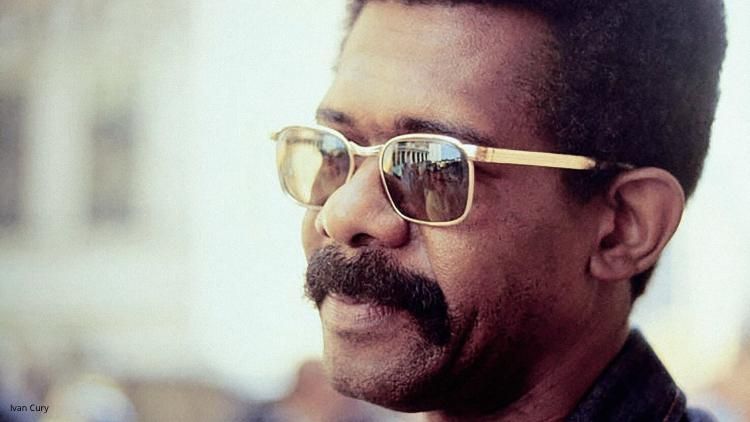Elliz Haizlip put Black joy at the center of his hit 1970s PBS show, Soul!
 David Artavia
David ArtaviaElliz Haizlip, the trailblazing gay Black host of the pioneering variety show Soul! (1968 - 1973), is the center of a new award-winning documentary, Mr. Soul.
For five years, Soul! carved a space for Black joy on television by celebrating Black culture, community, art, and life with an array of Black musicians, activists, and political luminaries like Sidney Poitier, Muhammad Ali, Cicely Tyson, James Baldwin, Toni Morrison, Patti LaBelle, Roberta Flack, and a young Stevie Wonder.
Mr. Soul premiered at the Tribeca Film Festival and won several awards on the festival circuit. Produced and directed by Haizlip’s niece, Melissa Haizlip, the film strongly highlights her uncle’s pursuit toward carving a space created by and for Black people.
"Ellis knew that Black joy was revolutionary. Carving out a space to be joyful. In curating the culture, he was also curating the joy,” Melissa said of her uncle in a recent online discussion (see below).
Blair Underwood, who was also part of the online discussion, added of Soul!, "It was unabashedly, unapologetically Black. For us, by us. It was rare. We don't even have that now."
"It is absolutely the artists throughout history who heal, and project and interpret, what the streets are saying, what the community is saying," said Underwood. "That's what this show did then, and that's what our job is now."
Haizlip was the first Black producer at WNET (then WNDT), the primary PBS station for the New York City Market, having joined the station in the mid-1960s.
When he was approached by Christopher Lukas, the station’s white director of cultural programming, to create an arts program for Black audiences, the young visionary conceptualized a variety show format to celebrate the diversity of Black culture and to challenge viewers by asking questions about the nuances therein — at the height of the Civil Rights movement, no less.
Soul! had a majority Black creative team — from the camera operators, set designers, and producers, according to Thirteen. One of them was Alice Hill, one of the first Black women to be an associate producer on a national TV series, who became Haizlip’s closes collaborator.
Haizlip was a frequent host and interviewer and was always sharply dressed and unassuming on air. When he spoke to his subjects it was clear that his motivation was to push the conversation as far as executives would allow him to go.
Born in Washington, D.C., in 1929, Haizlip was an out gay man in an era preceding Stonewall. Though executives at the network tolerated his queerness, according to reports, they made it clear that they were worried a gay man wasn’t an appropriate embodiment of Black masculinity on-camera. But that certainly didn’t stop him.
Haizlip also never shied away from speaking on LGBTQ+ issues. When Islamic leader Louis Farrakhan appeared on the program, Haizlip asked him whether the Nation of Islam welcomed Black gays and lesbians while also reminding him that many Black people had experienced conversion to Islam while in prison. (see the clip below)
By 1973, the show ran out of funding despite a strong viewership after PBS picked it up for national syndication.
Toward the end of its run, Haizlip was under serious pressure to integrate the show for white audiences after executives deemed anything celebrating Black power as a threat. That’s when, according to Thirteen, Haizlip was given the choice: integrate Soul! or have it cancelled.
The last episode aired on March 7, 1973, and Haizlip made no secrets as to why. He told the Washington Post at the time that the cancellation was “part of a policy to destroy all Black programming on the network. The Corporation for Public Broadcasting … preferred a sociological production rather than a cultural one, which is really no reason for canceling Soul!”
Haizlip was diagnosed with lung cancer in the 1980s, then a brain tumor shortly after. He died in 1991 at the age of 61.
Find out more about the documentary at MrSoulMovie.com.
00
